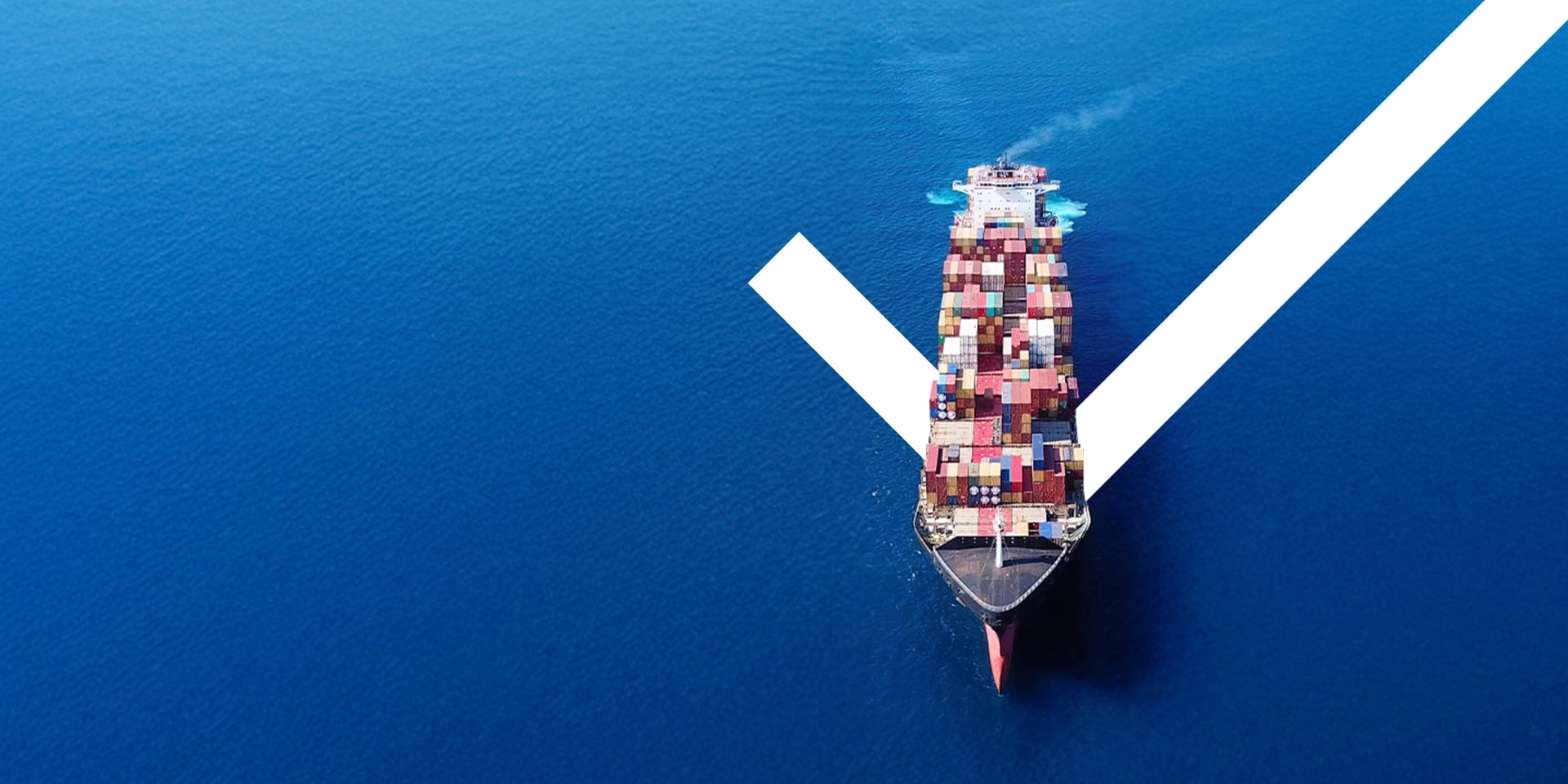What is the CII regulation?
The Carbon Intensity Indicator (CII) by the International Maritime Organization (IMO) measures ships’ carbon efficiency, calculating CO2 emissions per tonne-mile of cargo. Ships are rated from A (most efficient) to E (least efficient), encouraging greener practices.
How can ships improve their energy efficiency?
Ships can improve their CII rating by optimizing speed, using sustainable fuels, and installing energy-saving technologies. Performance is recorded in the Ship Energy Efficiency Management Plan (SEEMP), with annual reviews to ensure continuous improvement.
What does CII mean for compliance?
CII measures a ship’s CO₂ emissions per cargo capacity and nautical mile, with stricter thresholds over time. Ships rated D for three years or E for one year must submit a corrective plan to achieve a C rating or better. This applies to ships over 5,000 GT
What is the EU ETS (EU Emission Trading System) regulation?
The EU Emission Trading System (EU ETS) requires shipping companies to report CO2 emissions and hold emission allowances. Ships are rated from A to E based on their Carbon Intensity Indicator (CII), with performance recorded in the Ship Energy Efficiency Management Plan (SEEMP).
What is the impact on your business?
Customers will pay for their emissions, with costs rising from 90 Euros per ton of CO2 now to about 280 Euros by 2026. As emission quotas decrease, the Carbon Price will increase.
What does EU ETS mean for compliance?
Shipping companies must report CO2 emissions and hold enough allowances to cover them. Non-compliance can result in fines and operational restrictions, making it essential to adapt to these regulations.
What is the FuelEU maritime initiative?
The EU Fuel regulation, part of the FuelEU Maritime initiative, aims to reduce the carbon intensity of maritime fuels. It sets targets for greenhouse gas emission reductions, promotes renewable and low-carbon fuels, mandates on-shore power supply for ships in major EU ports, and includes penalties and incentives for compliance. This aligns with the EU’s Fit for 55 package and European Climate Law.
What is the impact on your business?
The regulation requires businesses to adopt renewable and low-carbon fuels, potentially necessitating investments in new fuel technologies and infrastructure, especially for on-shore power supply at major EU ports.
What does FuelEU mean for compliance?
Shipping companies must meet stringent standards to reduce carbon intensity, using low-carbon and renewable fuels by set deadlines. Non-compliance can result in fines and operational restrictions. Maritime operators need to upgrade fuel systems and adopt compliant fuels to align with EU regulations for a sustainable maritime sector.
Pioneering compliance in sustainable maritime operations
Everllence equips maritime operators with advanced technologies and services designed to meet the demands of new decarbonization regulations, including CII, EU ETS, and FuelEU Maritime. Our solutions, ranging from fuel-efficient retrofits to cutting-edge digital monitoring systems, ensure that your fleet complies with regulations like EU ETS and FuelEU and advances toward greater sustainability and operational excellence. We offer tailored assessments and implementations, supported by a global service network, to help you optimize performance and compliance seamlessly.
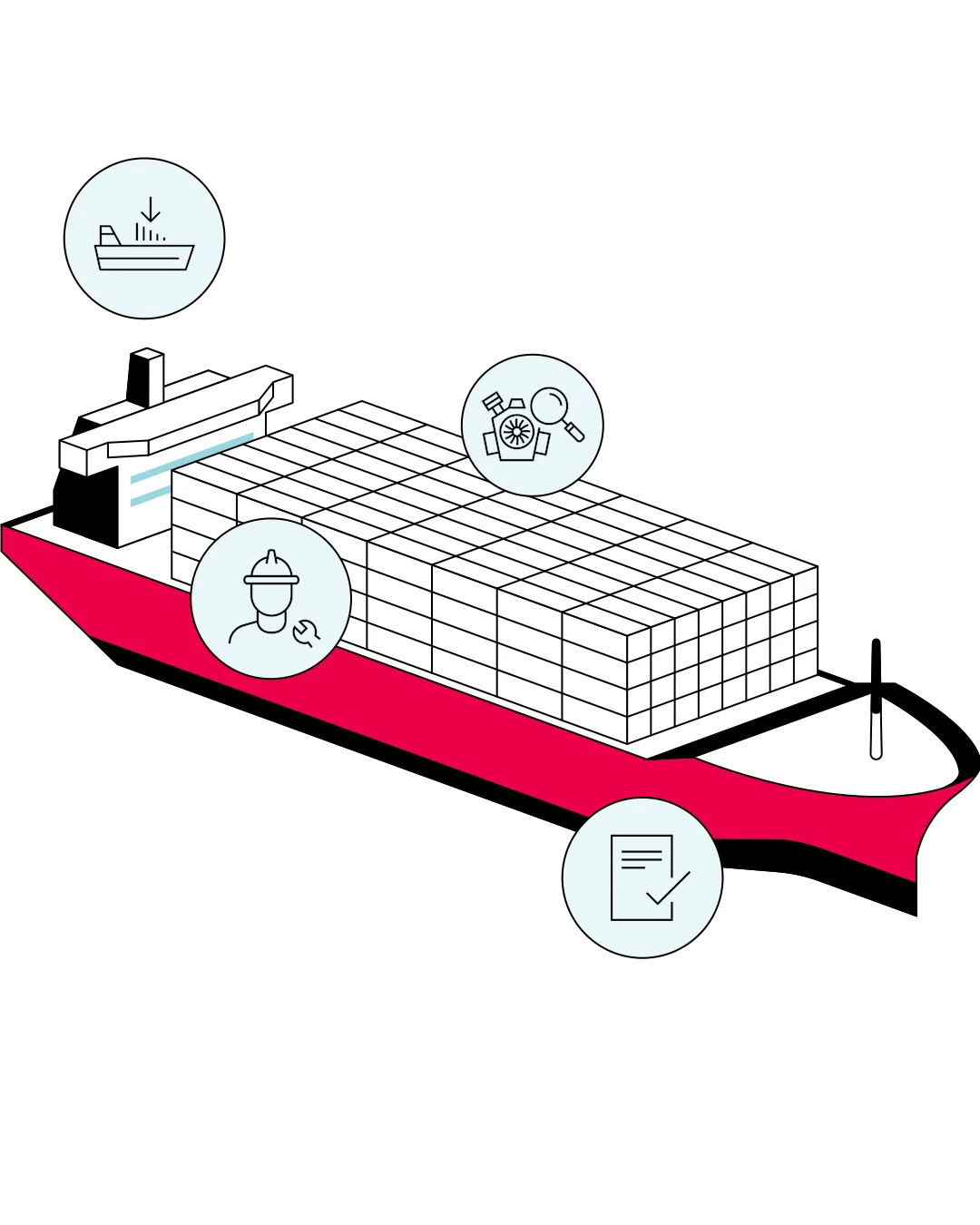
Your path to compliance
You’re only a few steps away
- Your situation now
- Analysis by the OEM designer experts
- Solutions mix (digital, retrofit, spare parts)
- Achieve compliance with regulations
Two-Stroke
solutions
EcoCam
The EcoCam is a low-cost, simple fuel-saving product. This low-load optimized virtual cam gives you lower emissions and instant fuel savings between 10% and 60% load. Supporting compliance with decarbonization regulations and improving CII performance, it enables efficient slow steaming with operational flexibility for mechanical engines and is available for engines with a wide exhaust camshaft.
EcoNozzle
Fuel savings with the EcoNozzle, the latest addition to the Eco family, are designed to reduce emissions across the full load range. With this new concept fitted, your engine will support CII rating improvement while delivering state-of-the-art combustion control.
PMI VIT
PMI VIT system is used for mechanically controlled Everllence B&W two-stroke engines and ensures the optimal cylinder pressure by controlling fuel-injection timing via an electronic actuator on the VIT (variable injection timing) rack.
Flexible Turbocharger Cut-Out
The Flexible Turbocharger Cut-Out (TCCO) gives operators the option to disable one of the turbochargers for slow steaming operation. This improves the performance of the remaining turbochargers, thus reducing SFOC.
EcoTuning
EcoTuning is a tailor-engineered part-load tuning solution that significantly reduces fuel consumption, supporting fleet decarbonization and compliance with EU decarbonization regulations such as the Carbon Intensity Indicator and the EU Emissions Trading System. This retrofit tuning is specifically designed for Everllence B&W two-stroke ME and ME-C engines, optimizing engine performance through software-based fine-tuning of the maximum combustion pressure.
EcoTorque
Governor control to improve cylinder liner condition and lower fuel consumption. EcoTorque improves the cylinder liner condition and fuel consumption by stabilizing the fuel index. This means that short-term external influences will not put excess strain on the engine, and the fuel index will remain steady.
PMI Adaptive Cylinder Control
With PMI Adaptive Cylinder Control, Everllence is taking engine tuning to the next level. Using a new, patented algorithm, closed loop control ensures that each individual cylinder always operates at its optimal cylinder pressure. This gives you the best engine performance and lowest possible fuel consumption at all times.
Flexible Turbocharger Cut Out
The Flexible Turbocharger Cut-Out (TCCO) gives operators the option to disable one of the turbochargers for slow steaming operation. This improves the performance of the remaining turbochargers, thus reducing SFOC.
PMI auto tuning
PMI auto-tuning is used for electronically controlled Everllence B&W two-stroke engines. This PMI system configuration ensures the optimal cylinder pressure by adjusting the fuel-injection timing and the opening of the exhaust valve.
Dual fuel conversion
A dual-fuel conversion is one of the most effective ways to drive greater efficiency, profitability, and especially CII compliance. Reliability, emission reduction, and alignment with EU maritime regulations are just some of the benefits our advanced retrofit solutions provide.
Maintenance kits
Correct use of Maintenance Kits assists in reducing fuel and lube oil consumption and ensures optimal energy utilization for propulsion or power generation. Continuous and preventive maintenance of engine components is key to maintaining an optimal CII rating and supporting EU decarbonization regulation compliance.
Cermet-coated piston ring
OEM piston rings are a critical part of your engine and play an important role in maintaining the performance of surrounding components, including emissions, fuel oil consumption and impacting your CII rating.
MXPSS
By using the Docking Package Service Solution, you will always get the latest design, most optimized spare parts and thus optimal engine operation, cost savings and emission optimization. This supports compliance with carbon intensity regulations and helps maintain a strong CII rating.
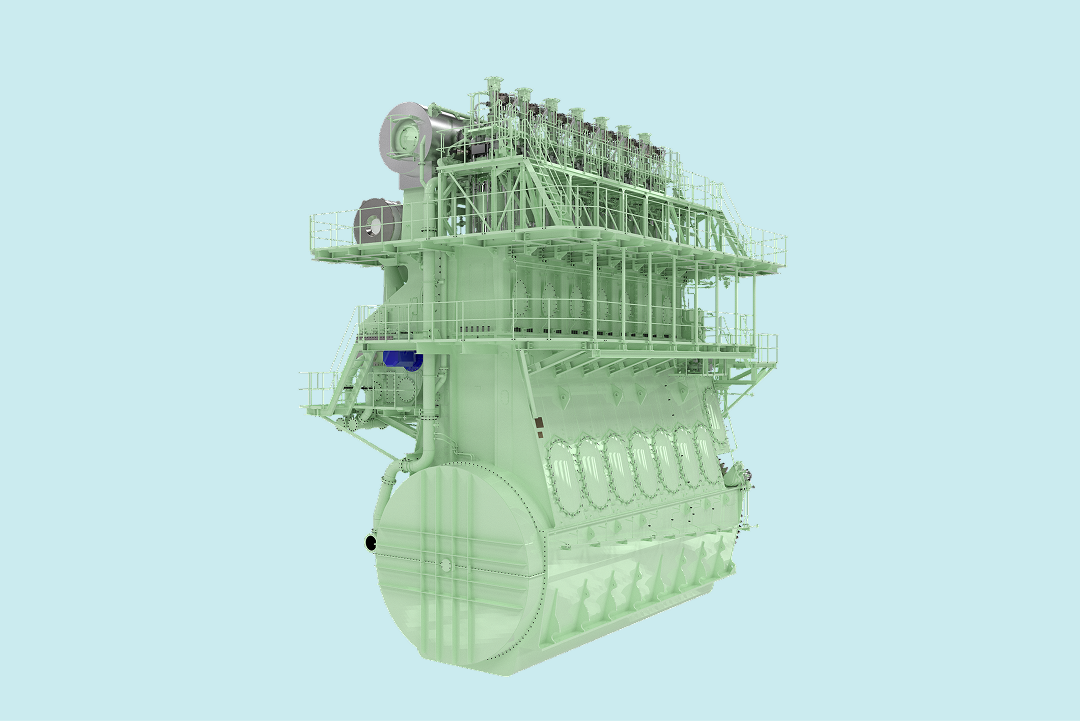
Four-Stroke
solutions
AdaptiVIT
The AdaptiVIT system uses combustion parameters to determine the injection timing. This guarantees the most efficient combustion process fully complying with the specified emission regulations. Permanent cylinder pressure measurement is the basic parameter of the AdaptiVIT system. Injection timing is permanently closed-loop controlled by the stand-alone system AdaptiVIT.
Engine Part Load Optimization (EPLO)
This retrofit aims to improve the efficiency between 50% and 65% maximum continuous rating (MCR) with a modification of the SaCoS control system. This technology uses the features of the pneumatic variable injection timing (VIT), and no scope of supply is required with this is installed. A new emission test was carried out and approved: the retrofitted engine will belong to a different engine group, and the new technical file is included in the offer for each engine variant.
Bio / Synthetic Fuel Upgrade
This solution enables the engine to run safely and efficiently with a non-petroleum derived fuel without replacing the main components of the engine. This permits to reduce the carbon footprint helping with international and regional emission regulations. A fuel analysis must be provided to build the best customized solution and ensure reliable running of the engine.
Lifecycle upgrate (LCU)
The retrofit solution that allows ship owners and operators to renew their Everllence 48/60 engines and upgrade them to new Everllence 51/60 engines. It includes the replacement of many components as well as upgrades to meet the latest regulations. It s a cost-effective solution to extend your engines life, improving the safety, performance, and reliability. In addition, it reduces fuel consumption and maintenance costs, allowing for greater efficiency and cost savings.
Dual Fuel Conversion
This retrofit delivers complete dual fuel conversion packages with upgraded turbochargers. A customized adaption of gas related plant equipment, engine control and safety installations allows reducing the carbon footprint in line with international and local regulations. Nitrogen oxides (NOx) are also low thanks to an optimized combustion in gas mode.
Maintenance Kits
Correct use of Maintenance Kits assists in reducing fuel and lube oil consumption and ensures optimal energy utilization for propulsion or power generation. Continuous and preventive maintenance of engine components are absolutely key in supporting and maintaining an optimal CII rating.
Overhaul Packages
By using overhaul packages, you will always get the latest design, most optimized spare parts and thus optimal engine operation, cost savings and emission optimization. Thereby supporting and maintaining an optimal CII rating.
MK3 pump
The MK3 (Mark 3) Pump is an injection pump with a sealing ring around the plunger to avoid the
lacquering effect. It is easy to retrofit on existing engines, best retrofit opportunity is during a scheduled pump maintenance interval. This improved conventional fuel injection system is compatible for Everllence engine families 23/30, 32/40CD, 48/60 B, 48/60 TS, 51/60 and 58/64 CD. Whereof 48/60A is still being under development.
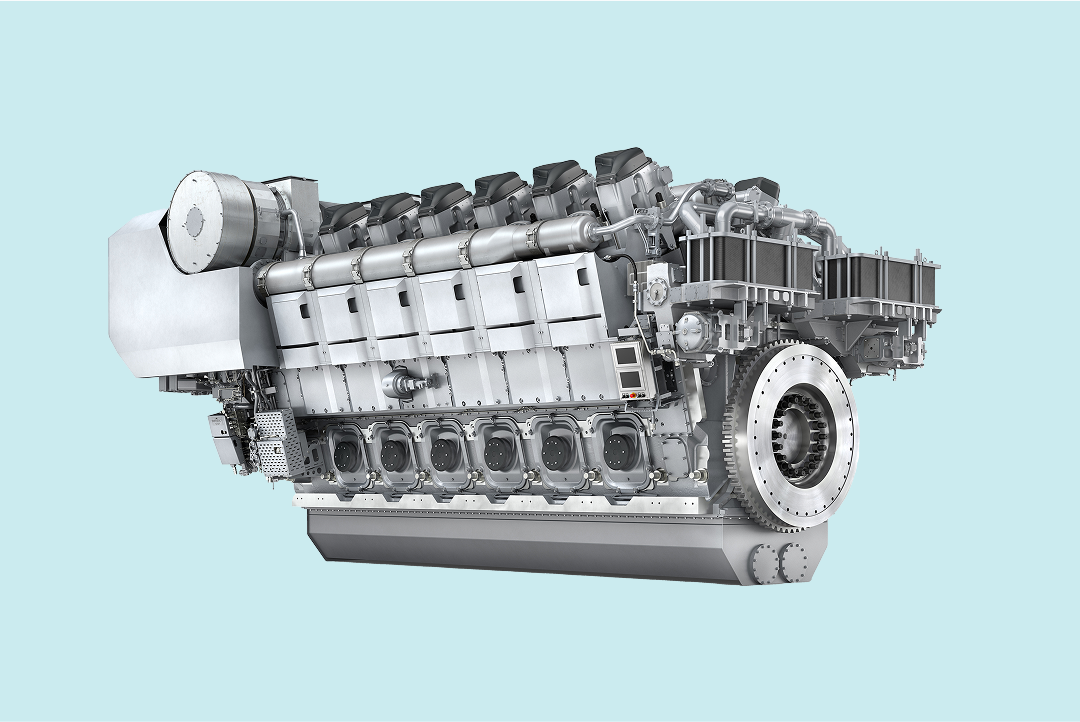
Propeller
solutions
All engine configurations with Alpha CPP and remote control system
Upgrade your CP propeller with the latest technology and hydrodynamic know-how. A CP propeller optimization provides great fuel-saving, allowing your vessel to meet stricter emission levels and CII requirements. This upgrade also potentially improves your energy class while optimizing your operational economy, providing a short return on investment.
All engine configurations with Alpha CPP and remote control system
The power required for propelling the ship and the corresponding SFOC of the main engine determines its total fuel oil consumption. Comparing the runs of the optimum propeller and engine curves will reveal that they do not coincide. One curve is optimal for the propeller and another one for the engine. EcoOptimizer harmonizes both curves for optimal energy efficiency.
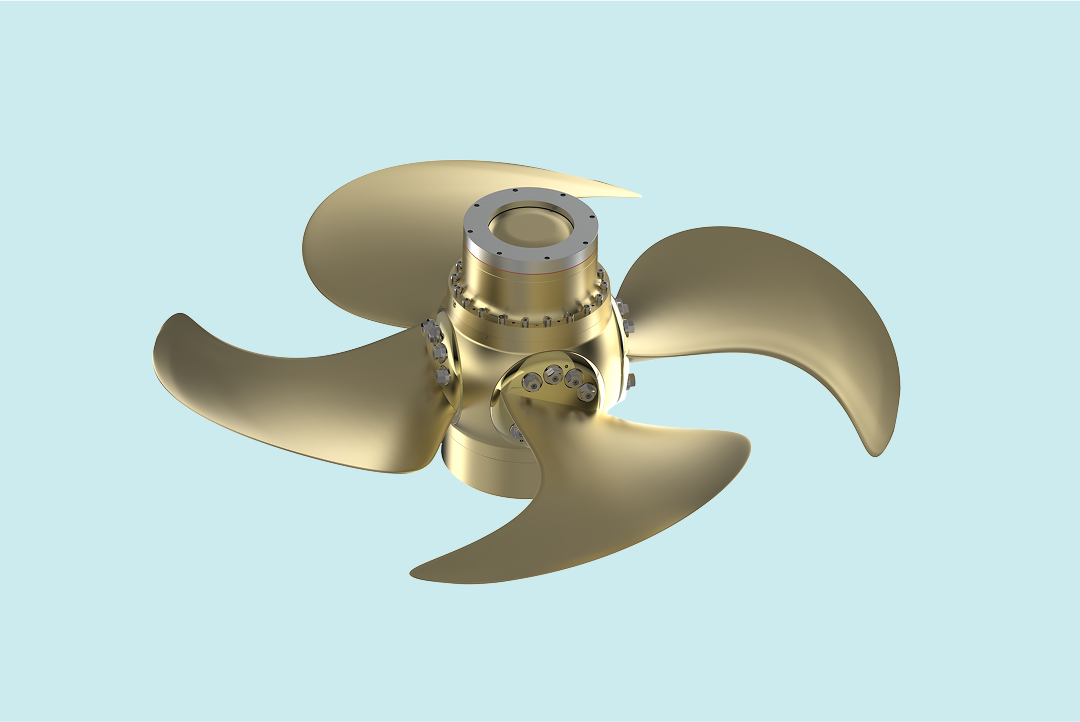
Turbocharger
solutions
The existing turbocharger of any manufacturer will be replaced by a state of the art Everllence turbocharger. Available for two-stroke and four-stroke engines on marine vessels and power plants. A turbocharger retrofit can give benefits including lower fuel consumption (especially when combined with other products), reduced exhaust gas temperature, optimized matching along with the load profile of the engine and extended overhaul and a new warranty.
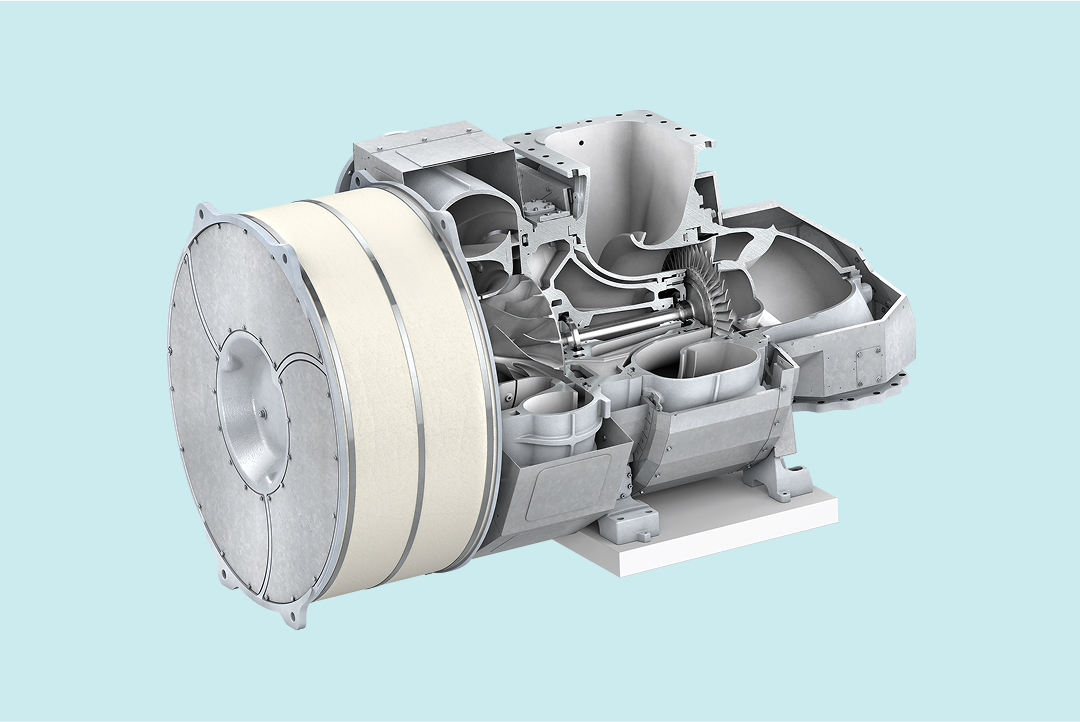
Other solutions to comply with CII regulation
Long Term Service Agreement
Everllence PrimeServ Long Term Service Agreements include continuous engine optimization, performance monitoring, and OPEX analyses, all of which improve fuel efficiency and reduce CO₂
emissions.
These agreements ensure engines operate according to the latest Everllence standards and designs, maintaining optimal combustion and lowering energy waste.

Technical services
Everllence PrimeServ’s technical service teams provide maintenance, repair, overhauls, and reconditioning for two‑stroke and four‑stroke engines, turbochargers, propellers, and aft‑ship systems. Well‑maintained engines operate more efficiently and burn less fuel, directly lowering emissions.
PrimeServ technicians use advanced diagnostics and OEM expertise to ensure optimal performance and uptime.

PrimeServ Academies
Everllence PrimeServ Academies offer training programs that help accelerate a vessel’s decarbonization by upskilling crews, de‑risking future‑fuel adoption, and optimizing existing assets through targeted learning aligned with real retrofit and digital‑optimization initiatives.

Digitalization
Everllence PrimeServ plays a central role in helping fleets meet global decarbonization targets. Our digitalization solutions combine engine optimization, emissions transparency, data‑driven efficiency improvements, and digital support for fuel‑transition retrofits.

Everllence PrimeServ can retrofit 30,000 vessels worldwide with leading decarbonization solutions
Our two-stroke dual-fuel retrofits can reduce the world's merchant fleet's CO₂ emissions (above 5000 GT) by over 20%
Everllence PrimeServ offers 60+ retrofit & upgrade solutions ready for your in-service fleet – designed to help you meet evolving decarbonization regulations.
Contact our PrimeServ Everllence experts
Get in touch now to start your path to CII compliance
Compliance requires effort. We, as the original manufacturer, can quickly deliver an actionable overview of what is needed to comply with CII, not only for now but also for the following decades.

